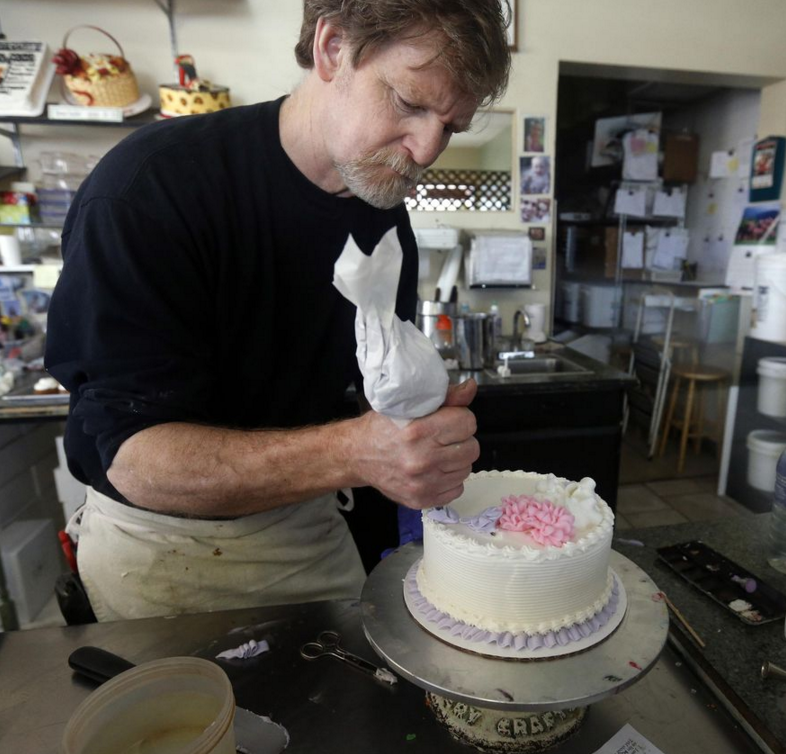LIBERTY: The case of the Christian baker has called into question the thin line between business rights and discrimination.
By Ben Diguglielmo, Staff Writer
In December of 2017, the Supreme Court was presented a case of a dispute between a Christian baker and two gay men over the production of a custom wedding cake. The two men requested a cake from Christian baker Jack Phillips, for their gay wedding. Reportedly, Phillips respectfully declined, and later said to an interviewer “I serve everybody who comes into my shop…So in this case I would gladly sell you anything in my shop but this is just an event that I can’t create a cake for.” In fact, Phillips made clear to interviewers and the court that he was okay with the couple buying anything off the shelf, but he was uncomfortable making a customized cake for their event. The gay men, Dave Mullins and Charlie Craig, were extremely upset over the event, stating “We went in so happy and left broken.” Mullins and Craig then filed a complaint for discrimination to the state of Colorado and won. Phillips was forced to make the choice between closing his bakery or violating his religious beliefs. He closed the bakery, but didn’t give up the case, and brought it to the Supreme Court. The Court must reach a decision by June of 2018.
The idea that the baker should be forced to make a custom cake for something against his beliefs is an attack on business rights and personal liberty. While on the surface it may seem like he was discriminating against the men on the basis of their sexuality, further analysis shows otherwise. There is a crucial recognizable difference between public accommodations and works-for-hire. Public accommodations are products made for the public that business owners agree to sell to anyone willing to buy them. In this case, an example of a public accommodation by the baker would be the pre-made cakes on the shelf. 42 U.S. Code § 2000a guarantees consumers equal access to these products despite any grievance of the business owner. Violation of this law would count as legal discrimination; Phillips did not violate this law, and in fact, he even offered them to buy anything off the shelf. Works for Hire is entirely different: a business owner agrees service to one individual person, and is not legally bound to provide equal access to any willing customer.
Forcing someone to create something that is specifically against their beliefs is a violation of that person’s rights to their labor and property. In the United States, people have the right to their religion and to their labor; no one has any obligation to make anything or conduct business with anyone if they do not want to. This is known as freedom of contract. An example would be custom painters. Custom painters have the right to turn down offers for ideas they do not want to carry out. If someone asked a custom painter to paint them a pornographic image, the painter is fully within their rights to refuse the offer on the terms of their personal beliefs. Cake baking is no different.
Artists have rights too. Actors can’t be forced to play gay characters, singers can’t be forced to sing songs that make them uncomfortable, painters can’t be forced to paint pornographic images, musicians can’t be forced to work for anyone that makes them an offer, and cake decorators can’t be forced to decorate cakes for events they feel uncomfortable with. This case is no longer just about the cake. This case is about the fundamental rights of every individual, business owner, and artist in the United States of America.

